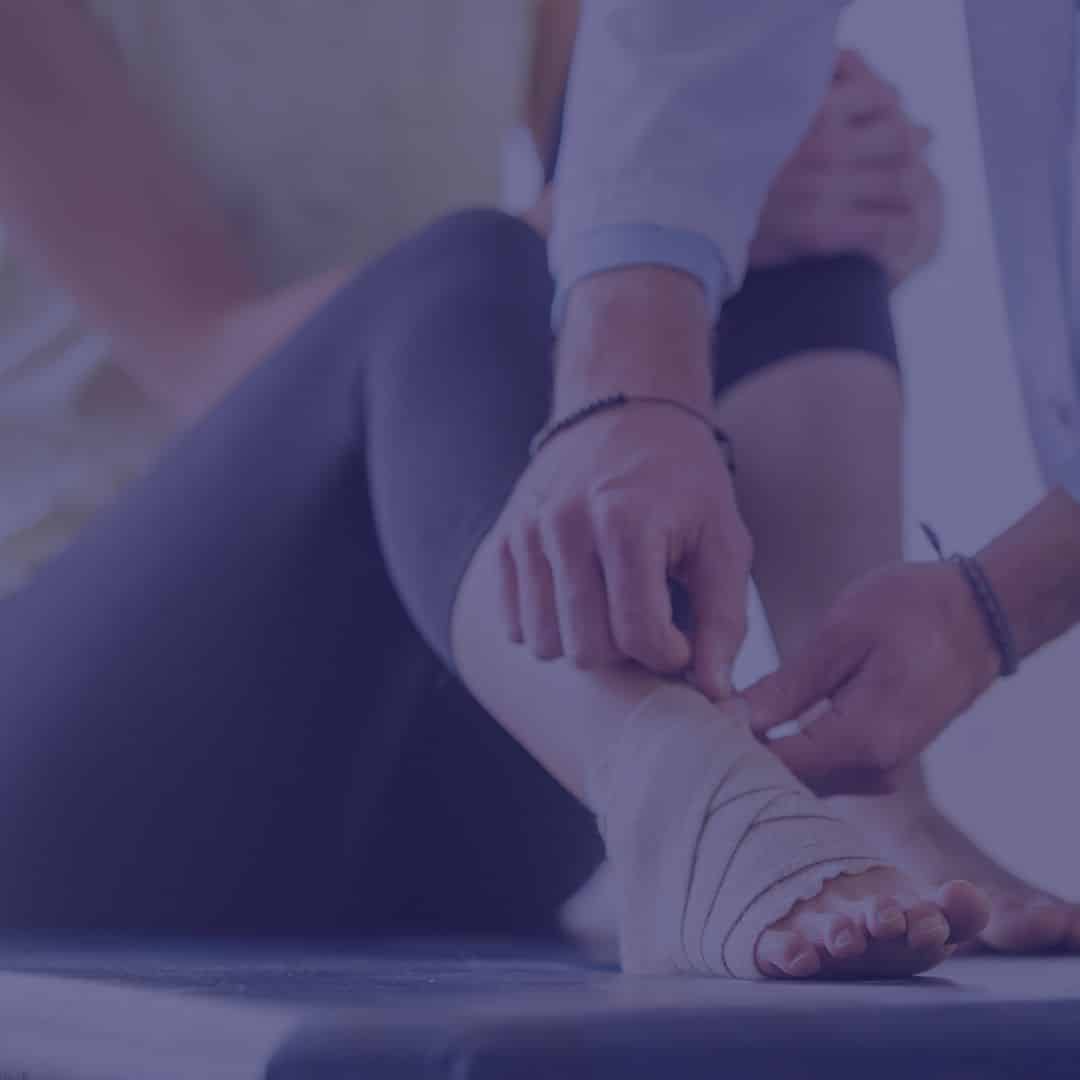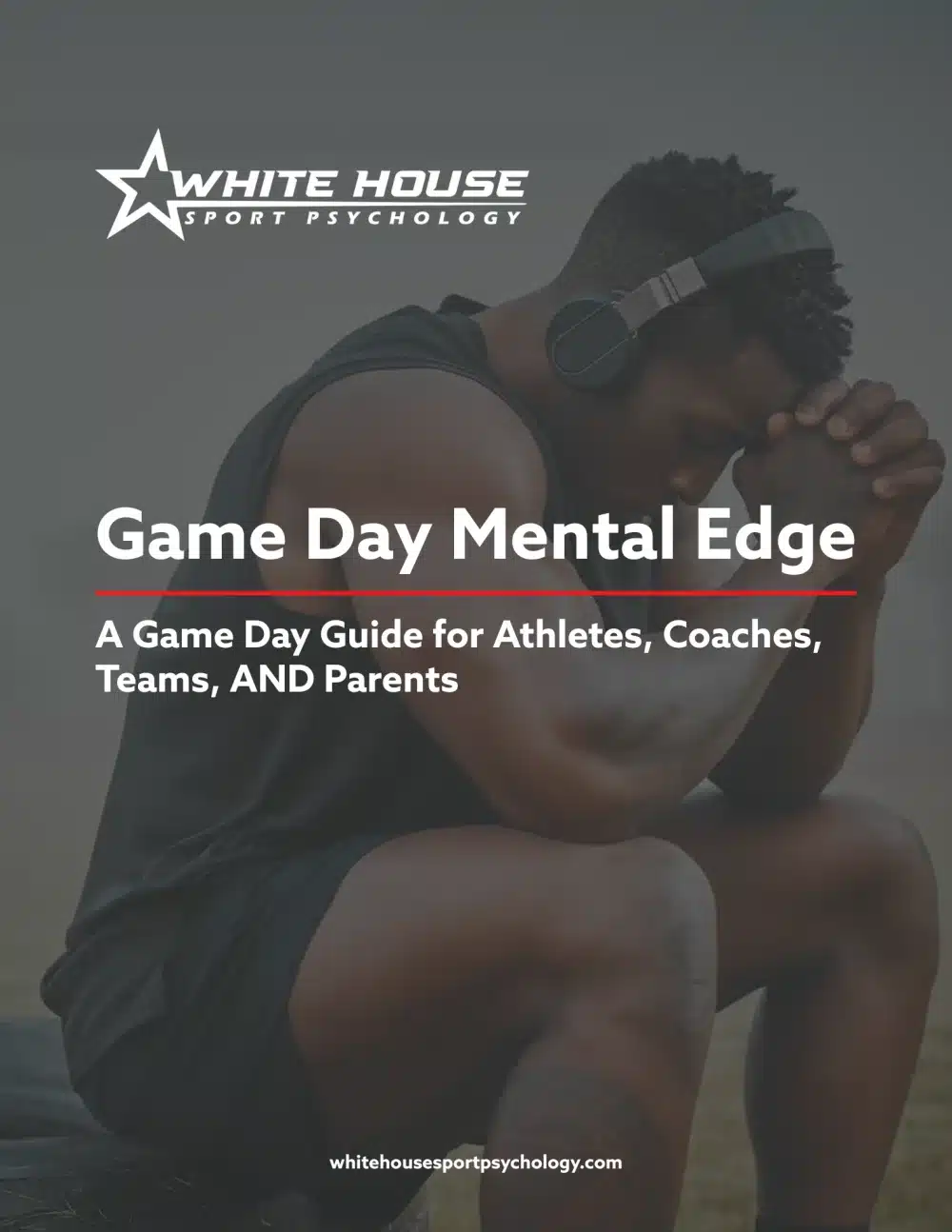
This article is written by a special guest – Ella Houwers. She is an intern with us at White House Sport Psychology as she works toward her goal of becoming a sport psychologist.
A life event that changed my perspective on swimming, sport psychology, and myself occurred when I tore my ACL during my freshman year of college. I’d never been injured up to that point, and as one of the best swimmers on my college team, I was expected to make the A-final in all my events at the conference meet as well as qualify for the NCAA Championship meet.
Two weeks before the conference meet, I tore my ACL outside of the pool. Not in practice, the weight room, or during dry-land training—doing something that was completely unrelated to my sport. Prior to this event, I felt invincible. I felt there was nothing that could stop me from my predestined success.
Then everything changed in an instant. This injury was devastating, and the fact that I couldn’t bend my knee at all was a big problem! I swam the breaststroke and the individual medley (IM). Both events are very knee-intensive (and they were what I was best at).
The Immediate Response
At first, I refused to accept what had happened. I started troubleshooting: How could I still compete? Could I modify my strokes?
I taught myself to do flip turns with a straight leg and swam freestyle using only one leg. I entered the 500, 1000, and 1650-yard freestyle races. Even though I couldn’t contribute points, I could still race as an exhibition athlete. I told myself: I’m still helping. I’m still in this.
But when I found out I wouldn’t be on the scoring team, the truth hit hard.
The Emotional Toll
In that moment, I felt ashamed and crushed. I had worked my whole life to swim in college, and it was my dream to qualify for NCAAs. I was devastated I wouldn’t see my goals come to fruition, and I felt like I had let my team down. Even worse, I knew they were counting on me to score points that I no longer had the opportunity to score.
I felt so guilty for letting down my team, but rather than having a pity party for myself, I decided I would do anything possible to still contribute to our team’s success. My new goal became to help my team at all costs.
I decided to swim the 500-yard, 1000-yard, and 1650-yard freestyle races with one leg. My perspective was that, even if my times weren’t going to count toward the final team score, maybe my teammates could draw strength or inspiration from me racing despite my injury. Just as important, I became the loudest 1-woman cheering section in the building. I literally could not talk by the end of the meet from cheering so loudly.
Shifting my mindset to a new purpose helped me stay present, even in the midst of heartbreak.
The Road to Recovery
I had found a way to make the best of a bad situation. However, once the conference meet was over, the rehabilitation process presented a new challenge. I quickly realized that my healing journey was just as much mental as it was physical. I had over a year of rehab, and I had to re-examine my view of myself, my identity, and my sense of self-worth.
My confidence and identity were tied to swimming; who was I without it? I felt isolated, unsure of my value, and deeply afraid that I’d never be the same athlete again. It took a long time for me to forgive myself, or feel like my teammates and coaches had forgiven me.
But this is where sport psychology changed everything.
How Sport Psychology Helped Me Heal
Sport psychology can help alleviate the feelings associated with injury, and it definitely made my recovery process easier and more efficient by working with someone trained in the mental aspects of sports. I learned how to cope and create a new identity for myself. I focused on the comeback. I wrote new rehab goals and celebrated the achievement of all of them, including:
- Increasing range of motion (even when only by a few degrees)
- First time I was able to get back in the pool
- First day I could use my breaststroke kick
- Adding an extra pound to my ankle weight during rehab
The list goes on. It was hard to feel like those things I used to do all the time were successes, but having a sport psychologist support me made it easier.
Although it was a long, hard journey, I did swim breaststroke again, and I did score at the conference meet over the next three years. I even swam a best time in the 200 breaststroke in my junior year, something I once doubted would be possible ever again.
This injury changed my life, but I am proud that I was able to overcome the mental challenges it presented to me. To this day, I know that the support of a sport psychologist and the mental tools I learned were a critical part of my journey, my comeback, my life-changing story.
You Don’t Have to Face It Alone
If you’re navigating an injury (or supporting someone who is), know this: you’re not alone, and there is help available.
Rehab isn’t just about physical therapy. The mental side matters just as much as the physical. Working with a sport psychologist can help you process the emotional impact, set meaningful goals, and rediscover confidence in your journey.
Reach out to White House Sport Psychology today to learn how we can support you or your athlete through the ups and downs of injury recovery. You have the power to come back stronger, and we’re here to help!

